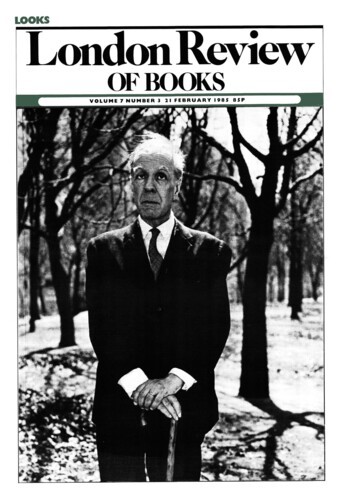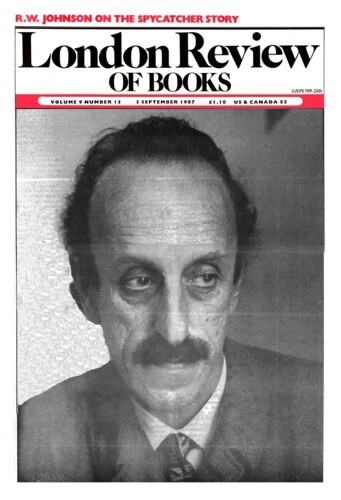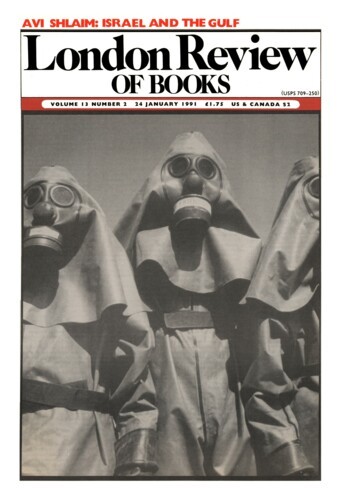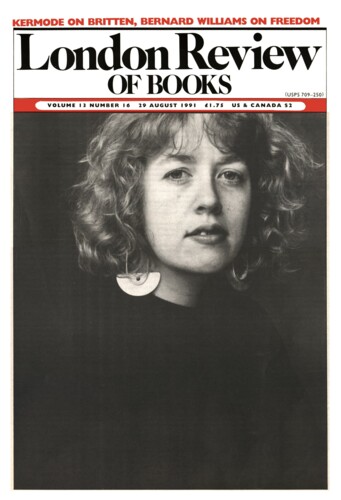Eating people is right
Paul Delany, 21 February 1985
The Sloane Ranger style, Peter York has told us, reflects ‘a state of mind that’s eternal’. This may be putting it a bit strongly: but the Sloane ancestry goes back at least to the days when knighthood was in flower and one really needed a pony. Like British trade unions, Sloanes have deep roots as a defensively-organised collective, and ‘What Really Matters’ to them may well matter differently, or not matter at all, to everyone else. In Modern Times York promises to tell ‘What’s Really Happening’ to everyone – not just Henry and Caroline. He still assumes that what’s happening is best explained in terms of style, and still concerns himself only with things that can raise a laugh, or at least a chuckle. But York is now looking at all of modern life as a single system of fashion. In a world where ‘Everybody Wants Everything’, who determines exactly what they want? Modern Times ranges from ‘Neurotic Boy Outsiders’ (James Dean, Anthony Perkins et al) to ‘The Fairisle Years’ (Chariots of Fire, Brideshead Revisited), with passing looks at Babytime, Bryan Ferry, Reactionary Chic, and Not Shaving.’




